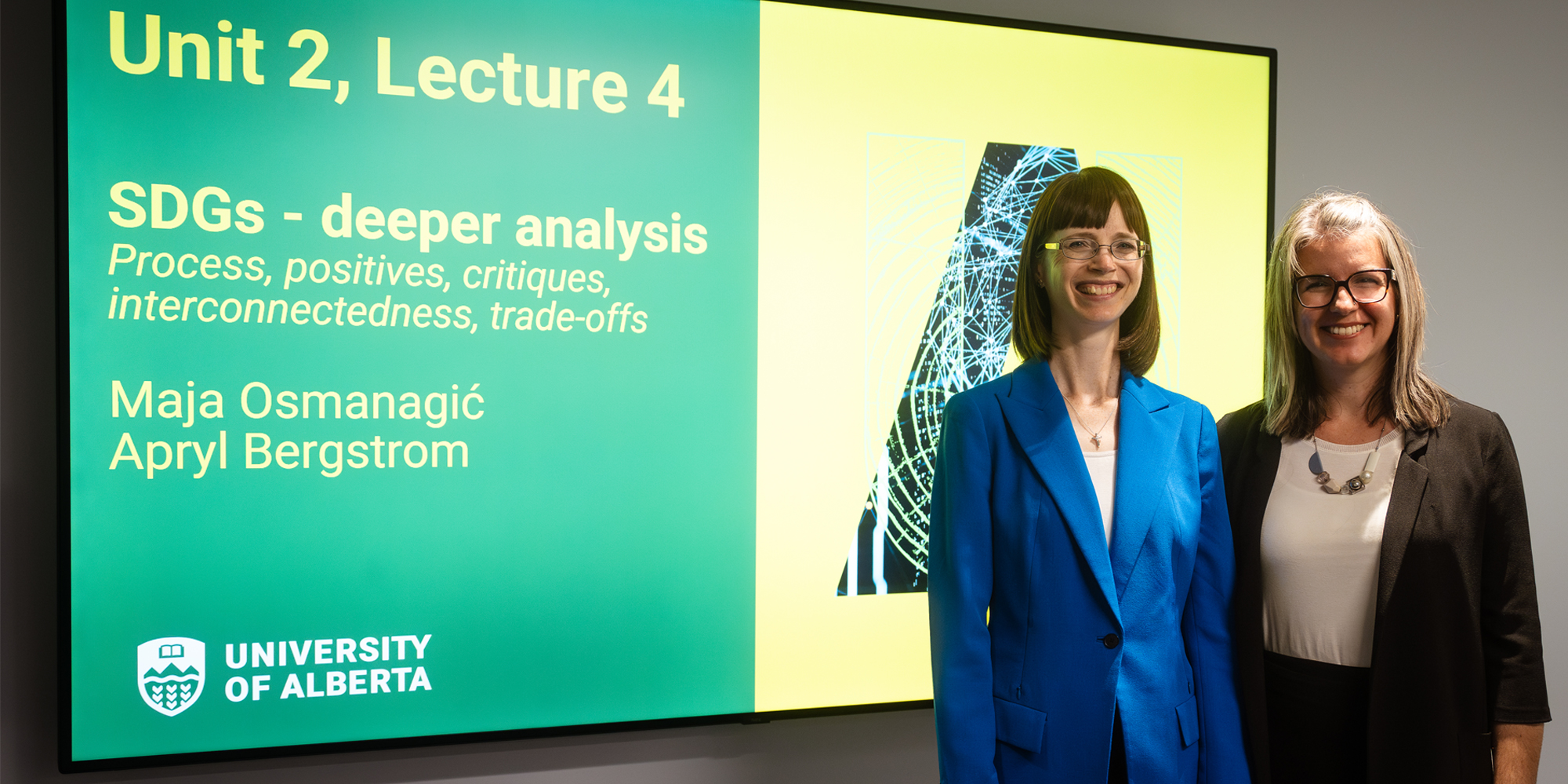
I took SUST 202 and participated in the Community Service Learning (CSL) placement. This course widened my perspective on the importance and challenges of sustainability that I can apply in both my personal and professional life. The quality of education I received through both the course and CSL placement will always stand out as a highlight of my undergraduate degree.
Taylor Martin, BSc in chemistry and biology, Third-year student
Get foundational sustainability knowledge for every undergraduate degree.
Sustainability is an approach to solving the world's most pressing challenges, from climate change to food security, renewable energy to social inequality. Sustainability is not just environmentalism—embedded in most definitions of sustainability we also find concerns for social equity and economic development.
Sustainability has roots in social justice, conservationism, internationalism and other past movements with rich histories. By the end of the twentieth century, many of these ideas had come together in the call for ‘sustainable development'. Today, this movement is championed by the United Nations in the Sustainable Development Goals, an ambitious global agenda for peace, prosperity and environmental well-being.
With a foundation in sustainability studies, you bring crucial perspectives into the rest of your degree, which is why SUST courses are open to undergraduates across all faculties. Enroll for your next favourite elective, today!
SUST 201 - Introduction to Sustainability
An introduction to the history of sustainability as a concept, contemporary sustainability issues, and the diverse perspectives that disciplines and professions take on while approaching sustainability.
SUST 201 and HGEO 250 are offered in collaboration, with HGEO 250 being offered in person at MWF at 9 a.m. and SUST 201 being offered as an online asynchronous course (students can watch lectures at a time of their choosing). The lectures will be recorded in the HGEO 250 class and posted on both the HGEO and SUST eclass pages. Students in HGEO 250 are free to choose to watch online and students in SUST 201 are free to attend the class in person. Students in HGEO 250 will write in class exams whereas students in SUST 201 will have take home exams written over a 24 hour time period.
Note Students who have credit in HGP 250 or who are taking HGEO 250 cannot take SUST 201 for credit.
SUST 202 - Global Sustainable Development and the SDGs
SUST 202 critically examines the evolution of development, sustainable development and the sustainable development goals (SDGs). Multiple dimensions and actors in international development will be covered. Students will be able to gain an understanding of the interconnectedness of the SDGs and the environmental, economic and social dimensions of sustainable development. The course is co-taught and will feature some guest speakers. Students will engage in topical discussions throughout the course.
Broadly, the course will cover the following topics:
- Origins and evolution of development and key development theories
- Evolution of sustainable development and the Sustainable Development Goals
- Climate change, environment, and the SDGs: trends, drivers, impacts and SDGs concerning climate change, water, biodiversity, population, food, agriculture and health care
- Poverty, inequality, and the social dimensions of international development (globalization, global civil society, gender and development, Indigenous peoples, conflict, and security)
- North/South development trajectories and impacts
- Global governance, international assistance, the international debt crisis, and state and non-state actors and partnerships
- SDG implementation and reporting at global and national levels, with a special focus on the Canadian context
- SDG initiatives and resources, and UAlberta's progress on the SDGs
Note SUST 201 is not a pre-requisite for this course.
SUST 300: Topics in Sustainability
Topics for this course vary and it may be taken more than once for credit provided no topic is repeated.
SUST 410 - Directed Study in Sustainability
Directed research or study in an area of sustainability defined by the student and a supervising instructor. May be used to fill the integrative project requirement of the Certificate in Sustainability. Registration requires approval of the Sustainability Council.
Email Apryl at apryl@ualberta.ca for information on how to register for this course.